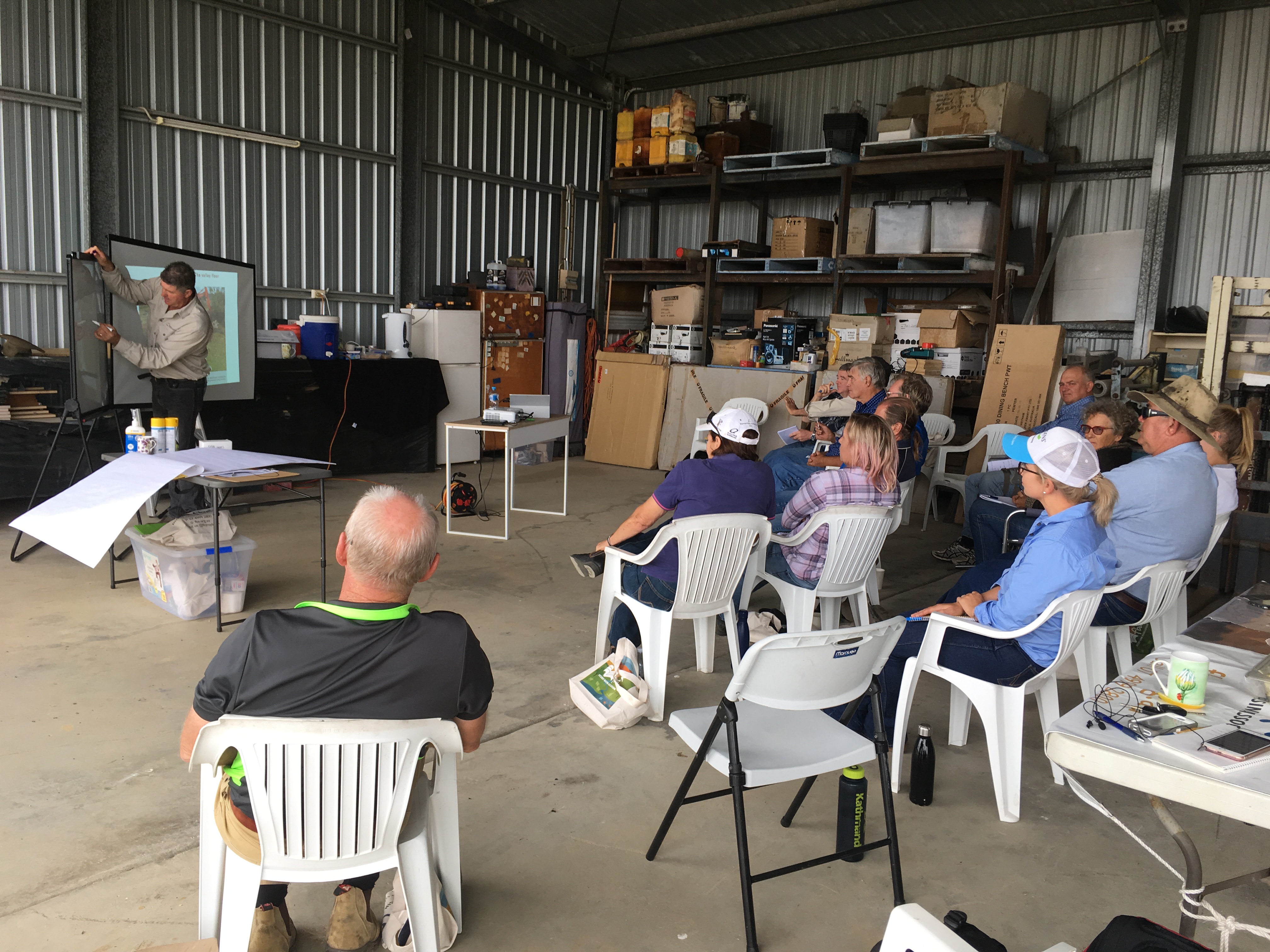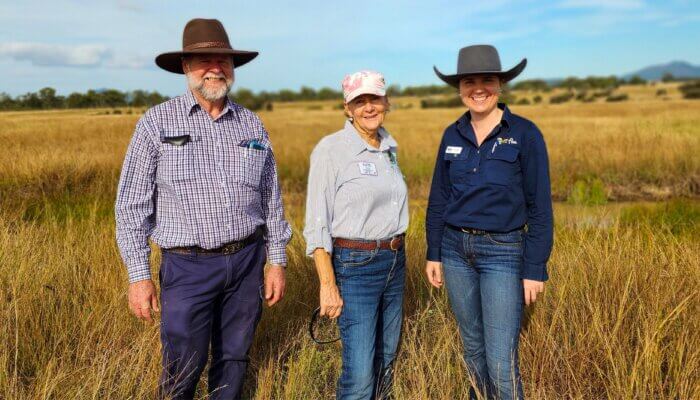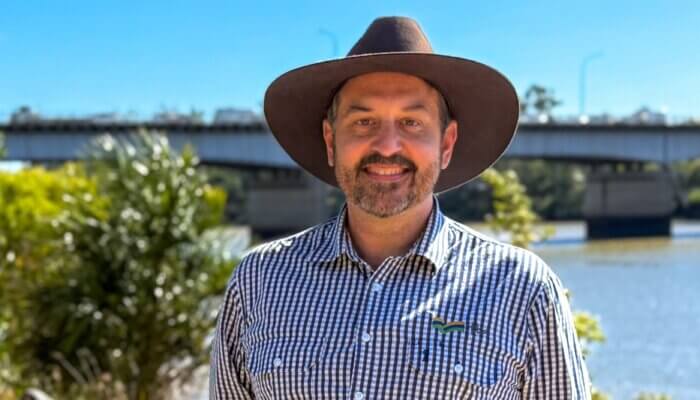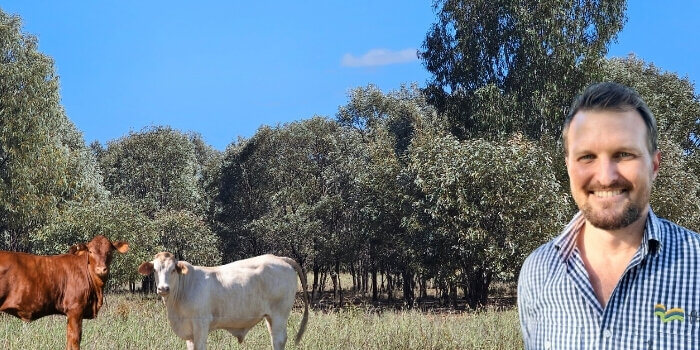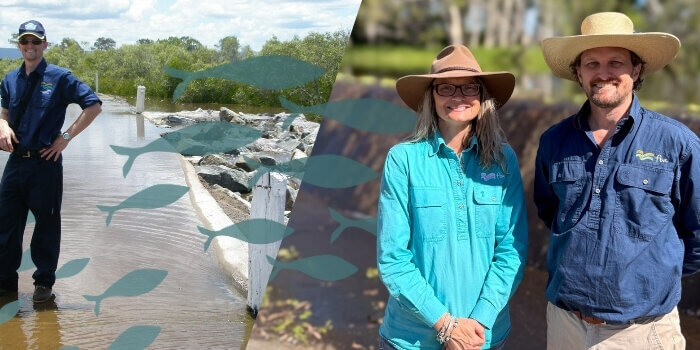
Erosion Control Field Day with The Mulloon Institute Project Coordinator Peter Hazell
Posted on May 20th, 2019
Ten landholders from across the Fitzroy Basin gathered at a Sandringham property last week to learn how to restore their properties natural function and rehydrate their land and enterprise.
Peter Hazell from the highly regarded research, education and advocacy organisation The Mulloon Institute, conducted the highly specialised two-day workshop. Both under the shed and out in the paddock, Peter provided participants with the theoretical and practical skills needed to start improving the condition of their land.
Peter is an expert in landscape hydration with 15 years of experience in the public and private sector. He has experience as a remote sensing specialist, a water scientist, and as an Australian Government NRM Facilitator. Based in the Mongarlowe watershed in NSW, Peter put his regenerative agriculture expertise into action through rehabilitating his 374ha farm with his family.
Focusing on dissipating the power of water and pushing it across and into the land, the group learnt how to design, survey and build a specialised structure. Together the collective made a water-spreading bank. This structure rebuilds soil fertility, restores lost biodiversity, improves water quality and moderates climatic extremes. Ultimately leading to increased production of high-quality nutrient-dense food and therefore, improved agriculture productivity.
Watch this video to learn more about the event.
After two-days of with Peter, here is what the attending landholders listed as the top five takeaways.
- Knowing where and how (the practical skills) to start rehydrating land
- Learning the three aspects if dissipating water energy (1) Increase water flow surface area, (2) decrease speed of flow, (3) increase surface roughness (with vegetation)
- Learning how water-spreading contour banks work (i.e. how they get water in the ground). Plus, gaining the skills to identify where to put contours and spill ponds.
- If you want to plant a tree, plant it well. Spend a little extra time and money to ensure that your tube stock thrives.
- “Every tonne of organic mulch will hold five tonnes of water which can produce 20 tonnes of organic matter. Therefore, ultimately increasing your carrying capacity” – Peter Hazell.
You don’t have to wait until you next workshop to start implementing these changes on your property. If you are in the Fitzroy Basin, contact us to learn how FBA can help you hydrate your landscape.
This project was delivered by Fitzroy Basin Association Inc. in partnership with Catchment Solutions, with funding from the Australian Government as part of Reef Trust.





